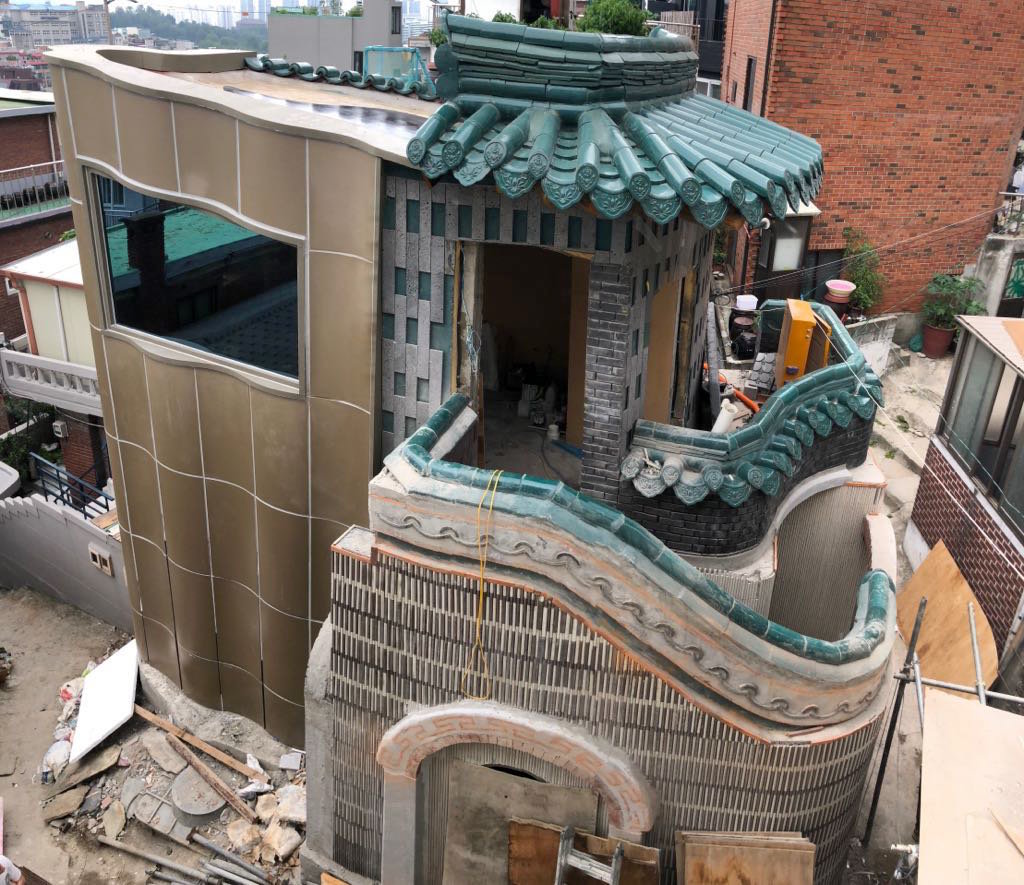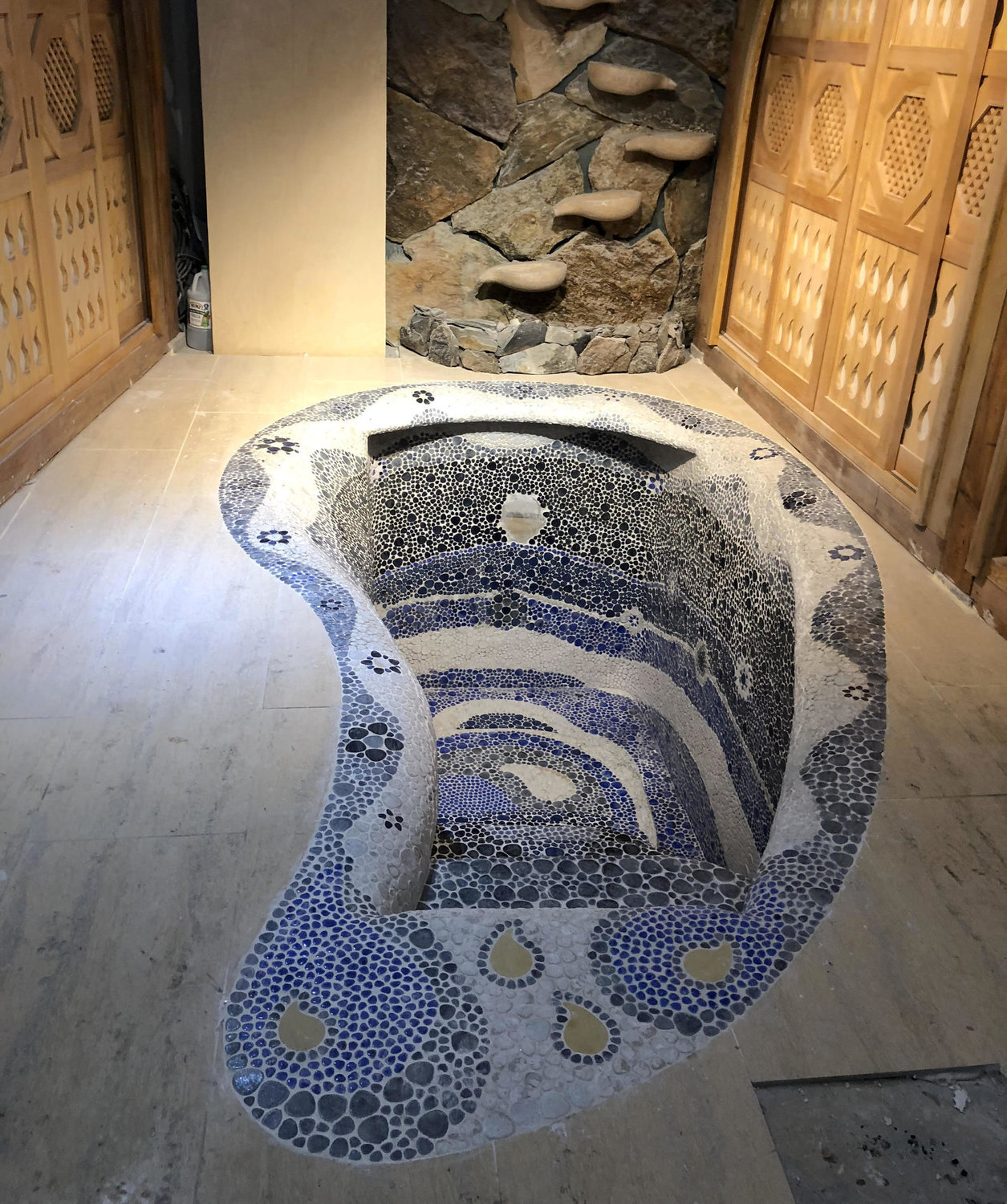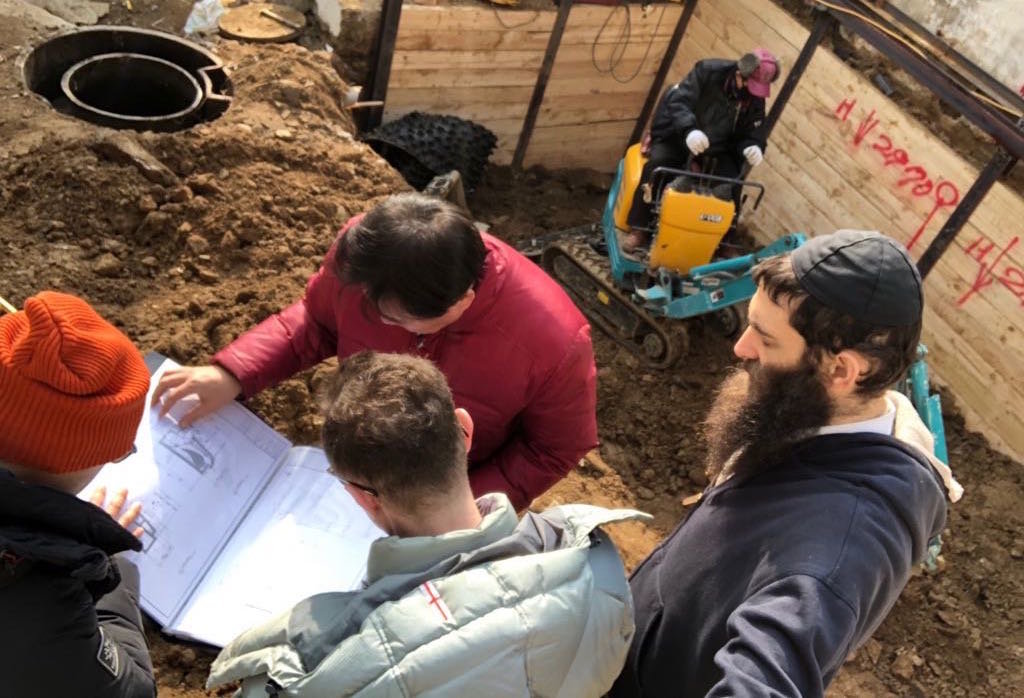Korea’s first mikvah features Asian aesthetics
Binah Messinger was faced with a unique challenge when her husband, Capt. Joseph Messinger, a US Army chaplain, was stationed in South Korea. With no mikvah on the Korean peninsula, observing the laws of family purity required some time, expense, and, when necessary, a little maneuvering.
“You could go to Japan or China to a mikvah there, and that’s a whole ordeal,” said Messinger. “I went to Japan one time after my daughter was born, and it took me 22 hours round trip. I didn’t want to go to China because that was even more complicated and came with a visa issue.”
Of course, using the waters of a nearby beach was a possibility, with someone there to ensure that her immersion was complete, but that required waiting until very late when the beaches in Korea were empty.
Other women she knew went with Chabad-Lubavitch emissary Mussy Litzman to the ocean about 90 minutes from Seoul. But with the military base two hours away without traffic, that, too, wasn’t an ideal solution.
Women who choose to fly overseas have to deal with last-minute flights, since they can’t always time in advance when they will need the use of a mikvah. That can translate into paying premium-priced ticket rates and scrambling to arrange childcare — all to observe what is one of Judaism’s most private and important mitzvahs.
Now the Litzman and her husband, Rabbi Osher Litzman, co-directors of Chabad of Korea, are building South Korea’s first mikvah.
To do so, the couple have become de facto designers, making sure that the community mikvah is aesthetically pleasing, in keeping with the natural themes of Asia.
“We wanted to have a mikvah that every woman would be happy to use,” said Mussy Litzman. “We didn’t skimp to make that happen. If we were building a mikvah for people to use, why not make it the best possible?
“Thank G-d, the feedback is unbelievable, and we haven’t even finished it yet.” The mikvah is expected to open in about six weeks.
At any given time, several hundred Jews call South Korea home. This number includes educators, US Army personnel and their families, students, diplomats, tourists and businesspeople from around the world, mostly the United States and Israel. —Chabad.Org

 45.0°,
Mostly Cloudy
45.0°,
Mostly Cloudy 









